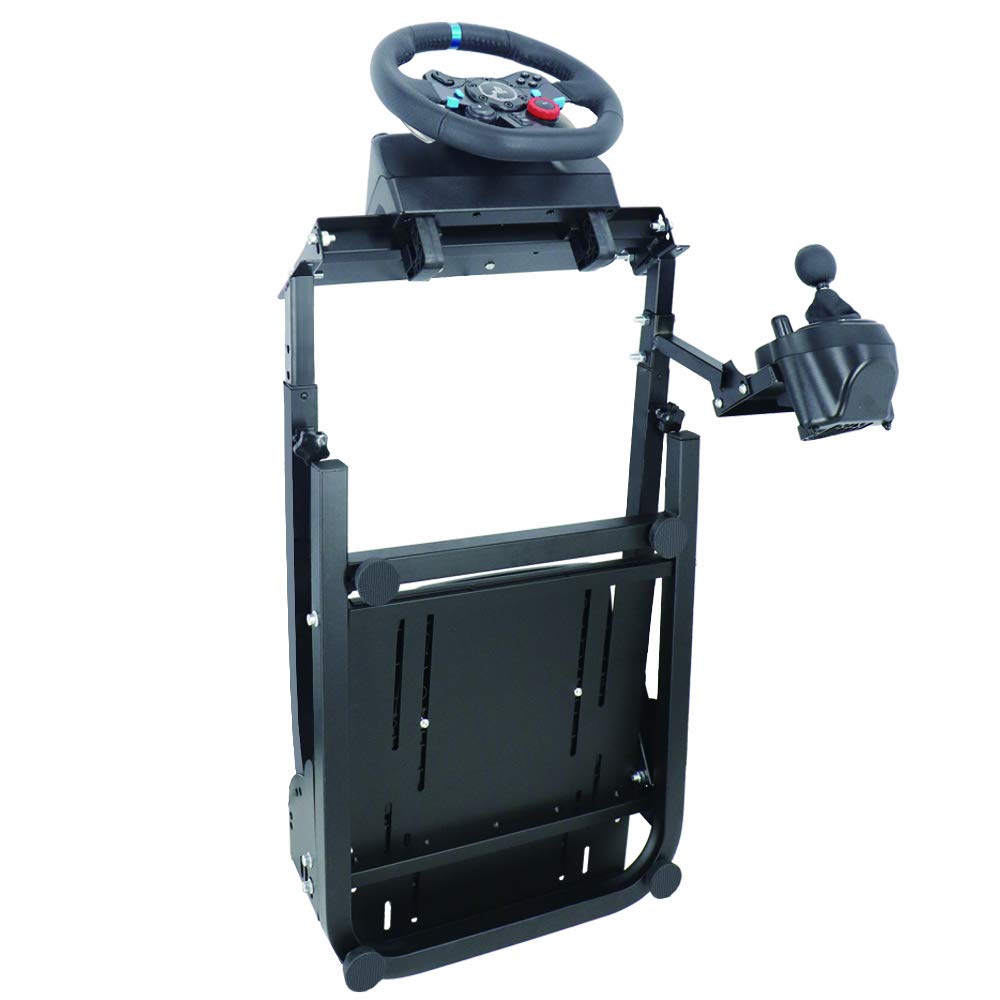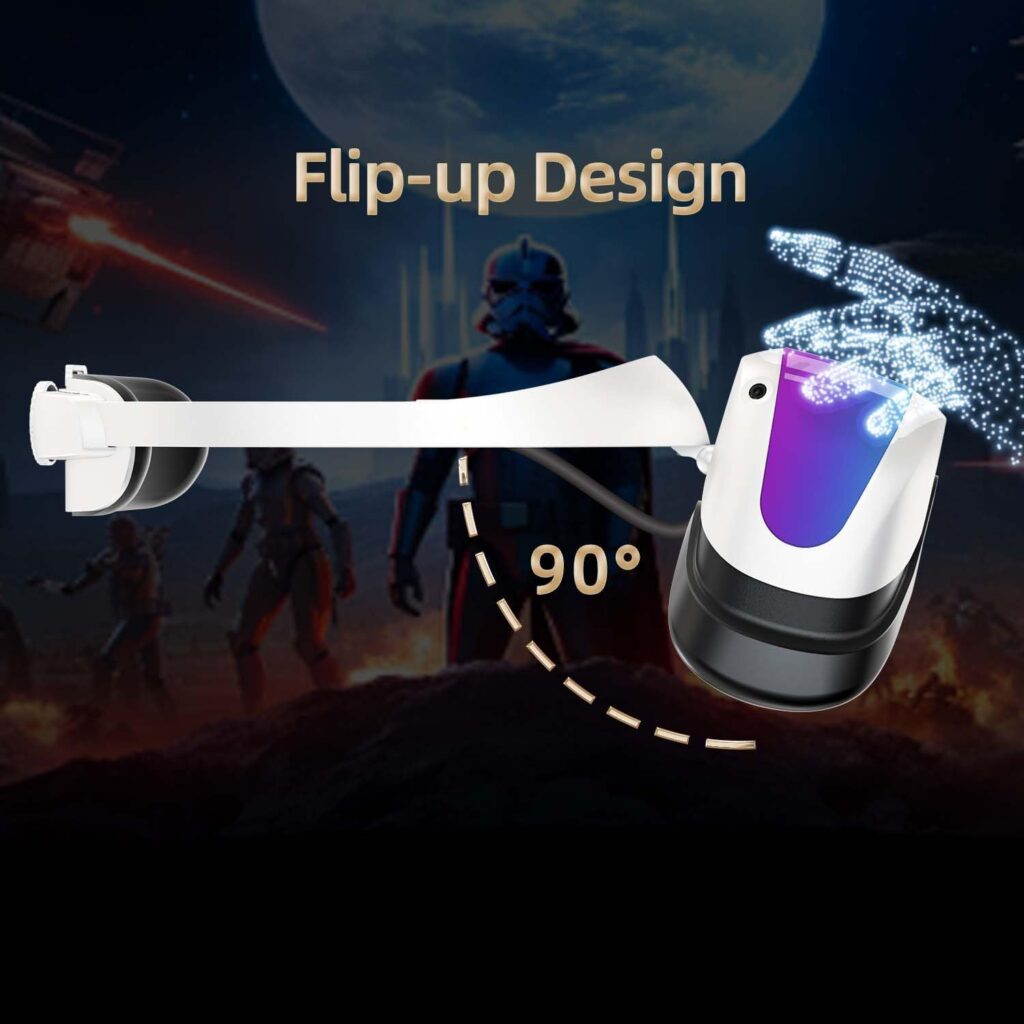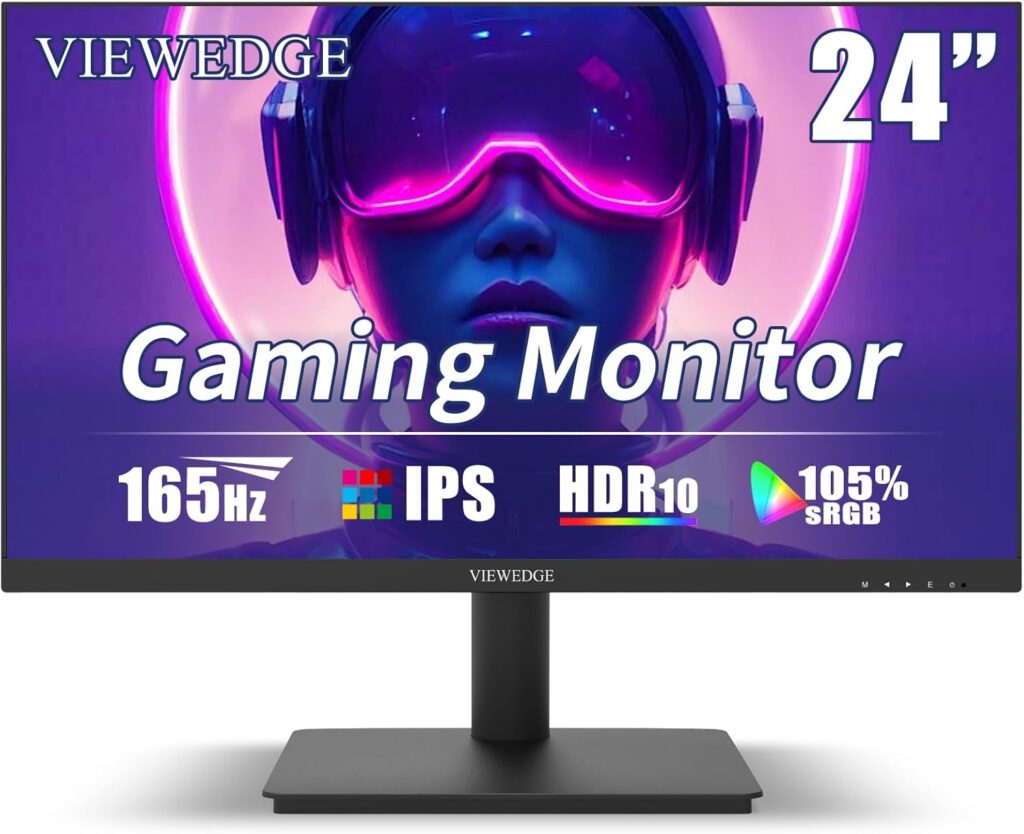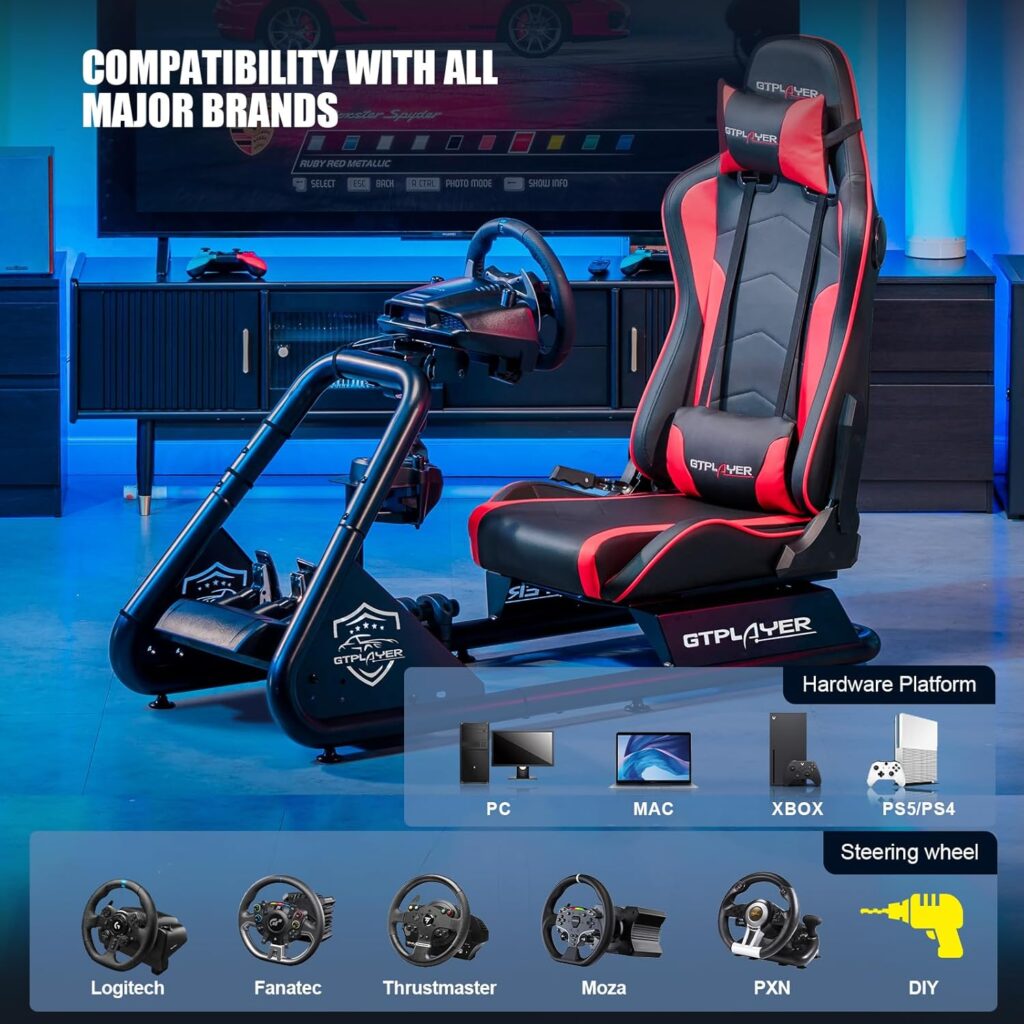Are you ready to take your sim racing experience to the next level? Choosing the right sim racing wheel is crucial in enhancing your immersion and performance on the virtual track.
But with so many options available, how do you make the right choice? Well, buckle up and get ready, because in this discussion, we will guide you through the key factors to consider when selecting the perfect sim racing wheel for your needs.
So, let's hit the pedal and dive into the world of sim racing wheels, where precision and control are at your fingertips.
Key Takeaways
- Ensure compatibility with your specific wheelbase and gaming platform
- Consider the compatibility between the wheelbase and hub, and explore universal-style hubs and adapters for more options
- Look for important features such as racing style, grip material, build quality, and the Quick Release (QR) Hub system
- Consider your budget and research different brands and price points to find the right wheel for you
Compatibility Factors to Consider
When considering the compatibility factors for your sim racing wheel, it's crucial to ensure that it's compatible with your specific wheelbase and gaming platform for seamless integration and optimal functionality. Compatibility is a key aspect to consider when choosing the right sim racing wheel for your setup.
First and foremost, you need to ensure that the wheel you choose is compatible with your specific wheelbase. Not all sim racing wheels are universally compatible with all wheelbases, so it's important to do your research and find a wheel that's designed to work with your particular wheelbase. This will ensure that the wheel can be properly mounted and connected to your setup, providing a stable and reliable connection.
Additionally, you should also consider the compatibility of the wheel with your preferred gaming platform. Whether you're gaming on a PC, PlayStation, or Xbox, it's important to choose a wheel that's compatible with your platform of choice. This will ensure that the wheel can seamlessly integrate with your gaming system, allowing you to fully enjoy the immersive experience of sim racing.
Wheelbase and Hub Compatibility
To ensure seamless integration and optimal functionality, it's crucial to consider the compatibility between the wheelbase and hub when choosing a sim racing wheel. The wheelbase serves as the foundation of your sim racing setup, connecting the steering wheel to your gaming system. Different wheelbases have varying hub compatibility, which determines the types of steering wheels that can be mounted on them.
When it comes to wheelbases, some manufacturers design their sim racing wheels to be compatible only with specific wheelbases. For example, Fanatec sim racing wheels are designed to work with Fanatec wheelbases, such as the popular Fanatec Podium Hub. This means that if you choose a Fanatec wheelbase, you'll have a limited selection of compatible steering wheels.
However, many wheelbases have universal-style hubs, allowing for the mounting of different steering wheels. This offers greater flexibility in choosing the best sim racing wheels for your setup. Additionally, adapters and hubs can be used to mount any wheel to any wheelbase, expanding the range of compatible options.
To make the right choice for your sim racing wheel, it's important to research the compatibility between the wheelbase and hub. Ensure that the steering wheel you choose is compatible with your preferred wheelbase or explore the possibility of using adapters to expand your options. By considering wheelbase and hub compatibility, you can ensure that your sim racing setup functions optimally and provides an immersive racing experience.
Important Features to Look for
Consider the specific features that are important to you when choosing a sim racing wheel, ensuring that it meets your racing style and offers the necessary functionality for an immersive driving experience. If you prefer GT racing, look for a wheel specifically designed for GT wheels, which typically have a larger diameter and a smaller steering angle compared to Formula wheels. Pay attention to the grip material as well, as it can greatly affect your control and comfort during long races. Prioritize build quality to ensure durability and longevity, as a flimsy wheel can negatively impact your overall experience.
When it comes to wheel compatibility, make sure the wheel you choose is compatible with your wheelbase. Some brands, like Fanatec, provide a range of options and adapters to mount different wheels on their wheelbase. Consider the Quick Release (QR) Hub system, which allows for easy swapping of wheels during gameplay.
Additionally, consider the ease of use and the rotation range of the wheel. A wheel that provides a wide range of rotation can enhance the realism of your driving experience. Look for a wheel that offers a responsive feel, with precise and accurate feedback.
Lastly, don't forget to consider the customer service provided by the manufacturer. A reliable and responsive customer service team can assist you with any issues or inquiries you may have during your ownership of the sim racing wheel.
Budget Considerations
Stick to reputable brands like Logitech, Thrustmaster, Fanatec, Simucube, and AccuForce for budget-friendly options when choosing a sim racing wheel. These brands have established themselves in the sim racing community and offer reliable and affordable options for beginners and budget-conscious individuals.
When considering your budget, it's important to keep a few key factors in mind:
- Customer Service and Reviews: Larger brands generally have better customer service and reviews for budget considerations. This ensures that you'll receive support and assistance if any issues arise with your purchase.
- Gear-driven Wheels: If you're on a smaller budget, gear-driven wheels are a great starting point. These wheels provide a good level of force feedback and steering performance without breaking the bank. They're a solid choice for beginners or those looking for a cheap wheel option.
- Direct Drive Wheels: If you have a bigger budget, direct drive wheels offer the best performance and realism. These high-end wheels provide incredibly detailed force feedback and precise steering control, replicating the feel of a real car. However, they come at a higher price point compared to gear-driven or belt-driven wheels.
Tips for Making an Informed Decision
When making an informed decision about choosing a sim racing wheel, it's crucial to carefully evaluate various factors that will impact your overall racing experience.
To begin, consider the type of racing you want to do. Formula-style, GT-style, or VR-friendly wheels offer different experiences and cater to specific preferences.
Next, evaluate the features and specifications of the wheel. Look for a wheel with a wide steering angle to provide more realistic control. Consider the grip material, as a high-quality material will ensure better handling during intense races. Build quality is also important, so opt for a wheel that's durable and can withstand long hours of use.
Compatibility and connectivity are key factors to consider as well. Ensure that the wheel is compatible with your existing setup or can be easily adapted. Research specific wheel recommendations to find the best option for your needs. Check factors such as price, build quality, and compatibility with your preferred type of racing.
Furthermore, it's worth comparing different drive types. Direct drive wheels offer the most realistic force feedback but are typically more expensive. Belt-driven wheels strike a balance between realism and affordability, while gear-driven wheels are more budget-friendly but may lack some realism.




